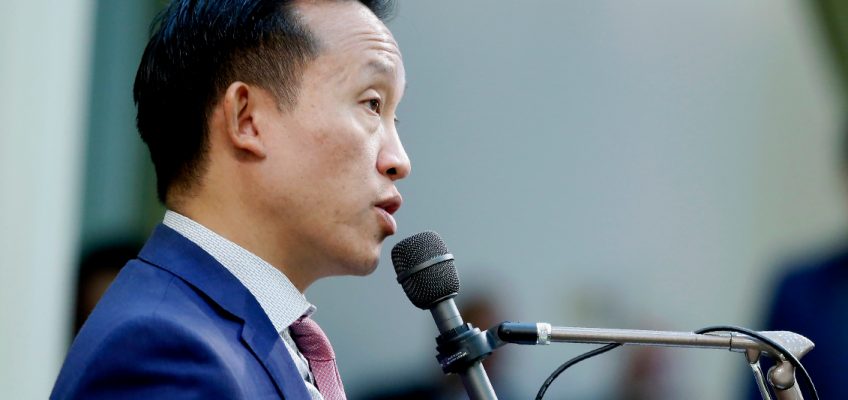SACRAMENTO, Calif. — War in the Middle East is testing a new system in California to track and respond to hate crimes.
The state has launched a hotline to report incidents linked to racial or ethnic bias, a tool created in response to attacks on Asian Americans during the pandemic. It’s poised to provide real-time indications as officials are concerned the conflict could reverberate throughout California, home to some of the largest Jewish and Muslim communities in the U.S.
Aside from vandalism, there have been no significant bias incidents in California — nothing akin to the stabbing of a 6-year-old boy in Illinois.
But that could change. “We have been anticipating that we may see an increase,” said Becky Monroe, a senior official at the California Civil Rights Department.
California is better prepared to deal with bias attacks that have typically surged as a result of war and terrorism overseas. The state now has the hotline, increased security thanks to state and federal grants, and a legal framework that has emerged in recent years to prosecute hate crimes following a spike in anti-Asian attacks.
The “California vs Hate” hotline has gotten over 400 reports since it launched in May, according to preliminary data. Unlike law enforcement statistics, the hotline collects reports of any incident, whether it rose to the level of a crime or not. Callers can get help finding mental health resources or navigating the criminal justice system if they want to report a crime.
In anticipation of a spike, case workers at the Civil Rights Department have been reaching out to mosques, synagogues, and cultural groups that serve Muslim or Arab-American Californians and are concerned about hate crimes, Monroe said.
The idea for the hotline was first floated in 2017 by then-Assemblymember David Chiu (D-San Francisco) in response to the skyrocketing number of hate crimes he said were a result of rhetoric from the Trump administration, but legislators weren’t convinced a hate crime hotline was necessary, Chiu recalled. He revived the idea in 2021 along with Assemblymember Al Muratsuchi (D-Torrance) amid an uptick in hostility against Asian Americans and a racially motivated spa shooting in Atlanta that killed eight people — six of Asian descent.
Chiu, who is now the city attorney of San Francisco, said he’s worried about an increase in hate incidents as a result of the war. “I see a direct throughline,” he said. “Our society has become all too accustomed to shocking examples of intolerance and hate.”
Jewish schools across the Bay Area have canceled classes or increased security in recent days out of an abundance of fear over violence.
Since 2019, the state has set aside about $135 million in grants to enhance security for nonprofit and religious organizations at risk of hate crimes. The program — which covers equipment like reinforced doors, security lighting and mass notification alert systems — was expanded this year after Jewish and Catholic religious groups appealed for more support in response to a rise in mass shootings and other targeted attacks.
On Wednesday, Newsom announced that he was adding an additional $20 million to the program, doubling what had been allocated for this year. He also announced an immediate infusion of $10 million to increase police presence at houses of worship, directly citing the ongoing violence in the Middle East as the reason.
California Attorney General Rob Bonta in 2021 also launched a racial justice bureau to prosecute hate crimes.
Hate crimes were on the rise in California before hostilities erupted in Israel, increasing by over 20 percent from 2021 to 2022, with 26 reported incidents against Muslims last year.
The stabbing death this month of 6-year-old Wadea Al-Fayoume in Chicago, apparently fueled by anti-Muslim hatred, has sparked fear of similar incidents in California.
California’s Sen. Laphonza Butler signaled that she is monitoring security in the state, posting online that “a wave of hate has emerged here at home.” And Gov. Gavin Newsom promoted the hotline as he assured the public that state officials, religious and educational leaders were working to bolster security and respond to threats of violence.
Amr Shabaik, the legal and policy director for the Council on American-Islamic Relations in Los Angeles, said since the violence broke out overseas, his group has gotten reports of anti-Palestinian, anti-Arab and Islamaphobic threats.
“We have received reports of students being bullied, college students being harassed, employees being discriminated against, folks facing harassment, intimidation, and threats in public places and online, and mosques and Islamic schools adding additional security,” he said in an email Monday.
Lara Korte contributed to this story.


Leave a Reply